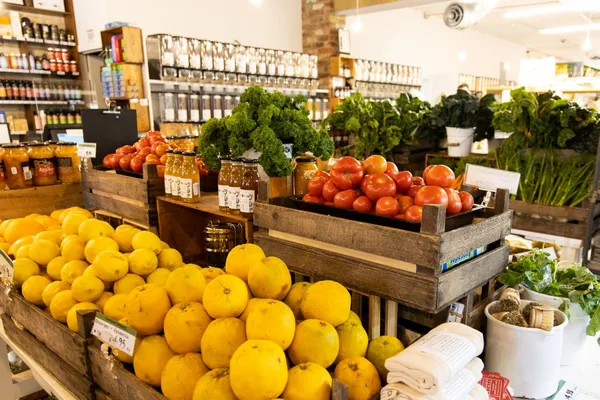Improved labelling of organic products will streamline the consumer buying process according to one of Australia’s largest certified organic retailers, Apples and Sage Organic Wholefoods, which has echoed Australian Organic Limited’s call for mandatory labelling on all certified products.
Servicing more than 3000 customers per week and housing more than 5000 certified organic products in Melbourne’s eastern suburbs, the Balywn-based business’s owners, Jenny and Leo Watling, noticed customers were checking products for certification proof and were particularly drawn to The Bud Logo.
The Bud is a symbol recognised by more than 62% of Australians and is stamped on goods which have met the Australian Certified Organic Standard (ACOS).
“The majority of consumers recognise The Bud and it is something that gives them peace of mind. It means they don’t have to do the hard yards of reading the packets and labels,” Jenny said. “They see The Bud and know it’s up to standard, they can simply buy the product and they don’t have to go through every fine detail because someone’s already done that job for them.”

It’s this power of clear labelling which propelled Australian Organic Limited (AOL), the peak industry body for the organic sector, to call for mandatory logos on all certified organic goods. AOL Chief Executive Officer, Niki Ford said the Australian Organic Market Report 2021 highlighted consumers were seeking ‘trust marks’ before making a purchase, which made the issue even more vital.
“The report found 59 per cent of buyers are looking for proof of certification when shopping and it’s the second most sought after information on product labels,” Ms Ford said. “Ensuring all certified organic products are labelled accordingly delivers this trust to consumers, as they are able to clearly see what is authentic and what is not.”
Worryingly, the Market Report also indicated almost one third (31%) of organic buyers believe they have previously been misled by a product’s claim. “This means consumers have become weary there are products being marketed as organic which have not been through the necessary checks and balances to gain organic certification,” Ms Ford said.
“The organic sector is already contributing more than $2 billion to the national economy annually, and with predictions of further growth, we are eager to see the industry unite behind a common-sense approach to labelling which provides consumers with clarity.”
For Leo, who is also an AOL Board Member, the immense trust guaranteed by The Bud has left no doubt in his mind the industry should have clearer labelling. “Anything that further gives the consumer peace of mind about what they’re buying is worthwhile,” Leo said. “What The Bud really means is the producer has a certification certificate for the product, so their farms have been checked to ensure there are no synthetic chemicals, they have not tested on animals, and they have looked after their employees.
For more information:
Australian Organic Limited
www.austorganic.com
